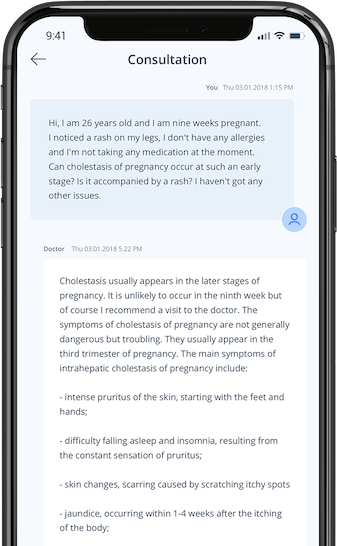The effects of exercise on the general well-being
- Cardiovascular health: According to the American Heart Association, living a sedentary lifestyle is one of the five major risk factors for cardiovascular disease including hypertension, hyperlipidemia (abnormal lipid levels in the blood), smoking, and obesity. It has been shown that patients who engage in a sedentary lifestyle, have a significantly increased risk of experiencing a cardiac arrest, stroke, or needing a coronary revascularization procedure bypass surgery or angioplasty. It is widely known that reducing these risk factors could significantly lower the chances of developing any of the aforementioned complications. Regular exercise aids in weight loss and can help regulate blood pressure and the overall lipid panel. In individuals with diabetes, regular physical activity improves the body's ability to utilize insulin and regulate blood glucose levels.
- Skeletal-muscular health: Physical activity affects bones in a similar way to how it affects muscles, as it contributes to their strength. Exercise plays a crucial role in developing strong bones during our younger years and is equally vital for preserving bone health as we age. Since bones are living tissue, they undergo changes over time in response to the stresses they experience. Regular exercise stimulates the bone to increase its density and build more bone, resulting in improved bone strength.
- Regulation of the endocrine system: Leading global health organizations emphasize the significance of incorporating regular physical activity and exercise into individuals' lifestyles for optimal health. Engaging in physical activity and exercise has a profound impact on the endocrine system, triggering the release of various hormones. These hormonal responses influence multiple systems within the body. When performed regularly, physical activity and exercise elicit benefits to overall health. Engaging in regular physical activity has been shown to lower the likelihood of developing type 2 diabetes and metabolic syndrome (Metabolic syndrome is a medical condition characterized by the presence of diabetes, hypertension (high blood pressure), and obesity. It significantly increases the chances of developing coronary heart disease, stroke, and other vascular conditions).
- Decrease the chances of developing cancer: by maintaining a healthy weight, increasing overall energy levels, and keeping the immune system "on its toes", exercising has been shown to reduce the likelihood of developing several cancers (i.e., lung, kidney, colon, etc.)
- The effects on the brain: it is not exactly known why we sleep better after exercising but it has been shown that we go into a deeper sleep state after aerobic exercises. Physical activity has been shown to provide immediate benefits for brain health. In children, physical activity was shown to enhances cognitive abilities and thinking skills. In adults, it has been observed to decrease short-term feelings of anxiety. By consistently participating in physical activity, you can maintain cognitive functions, learning capabilities, and decision-making skills as you grow older. Additionally, regular physical activity reduces the risk of experiencing depression and anxiety.
- Enhanced immunity: Engaging in physical activity has the potential to facilitate the removal of bacteria from the lungs and airways, which can decrease the risk of contracting illnesses like colds, flu, and other infections. Exercise induces changes in antibodies and white blood cells, which are the body's defense against diseases. These immune cells circulate more efficiently, enabling them to detect illnesses earlier than they otherwise would. However, it remains unclear whether these changes directly contribute to preventing infections. The temporary increase in body temperature during and after exercise can inhibit the growth of bacteria. This elevated temperature may enhance the body's ability to combat infections, similar to the way a fever functions. Furthermore, physical activity helps regulate the release of stress hormones, which can impact immune function. By reducing stress hormone levels, exercise may offer protection against illnesses associated with heightened stress.
- Psychological well-being: in addition to providing better sleep, when you engage in exercise, the chemical levels in your brain undergo changes. Consistent physical activity promotes better sleep, and quality sleep, in turn, aids in managing your mood. Exercise has the potential to enhance your sense of control, coping skills, and self-esteem. Individuals who exercise regularly often express the positive emotions that arise from achieving their fitness goals, they also achieve better social interactions and support groups. Physical activity can divert your attention from negative thoughts and provide opportunities to explore new experiences. It serves as an avenue for social interaction and can provide social support, especially when exercising with others. Exercise boosts your energy levels, leading to increased vitality. Participating in physical activity can serve as an outlet for frustrations and pent-up emotions. By reducing skeletal muscle tension, exercise facilitates a state of relaxation and promotes a sense of calm.
- Longevity: In a study that examined three decades of medical records and mortality data from over 100,000 participants, researchers discovered noteworthy findings. Individuals who adhered to the minimum physical activity guidelines, involving 150-300 minutes per week of moderate-intensity activity or 75-150 minutes per week of vigorous-intensity activity, were able to reduce their risk of premature death by up to 21%. However, those who engaged in physical activity two to four times greater than the recommended minimum were able to further decrease their risk by as much as 31%.
- Exercise and Cardiovascular Health
- NCBI: Exercise Endocrinology: "What Comes Next?"
- NCBI: Exercise and bone health across the lifespan
- NCBI: Inflammation Mediates Exercise Effects on Fatigue in Patients with Breast Cancer
- NCBI: Interrelationship between Sleep and Exercise: A Systematic Review
- NCBI: Effects of Physical Exercise on Cognitive Functioning and Wellbeing: Biological and Psychological Benefits
- Exercise and the Regulation of Immune Functions
- Exercise and immunity
- Getting more exercise than guidelines suggest may further lower death risk








